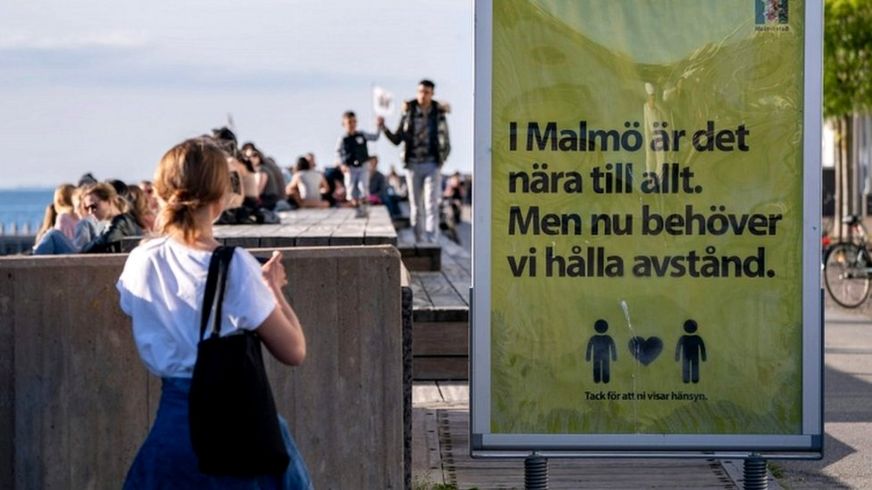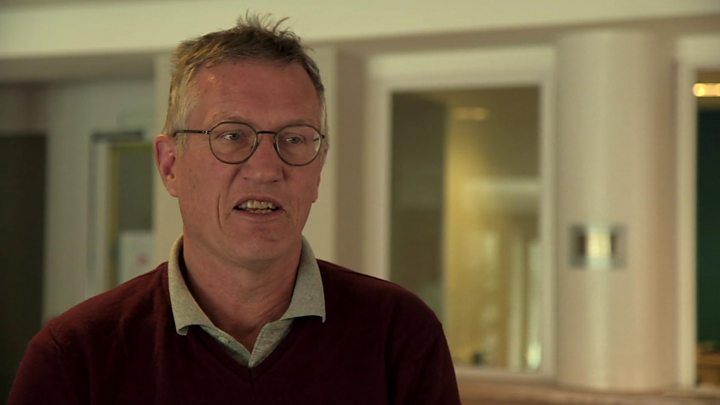Создатель шведской системы борьбы с вирусом без карантина и закрытия бизнесов признал, что если бы карантин был, смертей было бы меньше
Опубликовано 2020-06-03 14:00
 Image copyrightAFP
Image copyrightAFP
Sweden's controversial decision not to impose a strict lockdown in response to the Covid-19 pandemic led to too many deaths, the man behind the policy, Anders Tegnell, has acknowledged.
Sweden has seen a far higher mortality rate than its nearest neighbours and its nationals are being barred from crossing their borders.
Mr Tegnell told Swedish radio more should have been done early on.
"There is quite obviously a potential for improvement in what we have done."
Sweden has counted 4,468 deaths and 38,589 infections in a population of 10 million, while Denmark, Norway and Finland have imposed lockdowns and seen far lower rates.
Denmark has seen 580 deaths, Norway has had 237 deaths and Finland 320.
How Tegnell's views have changed
Mr Tegnell, who is Sweden's state epidemiologist and in charge of the country's response to Covid-19, told BBC News in April that the high death toll was mainly because homes for the elderly had been unable to keep the disease out, although he emphasised that "does not disqualify our strategy as a whole".

Now he has told Swedish public radio: "If we were to encounter the same disease again, knowing exactly what we know about it today, I think we would settle on doing something in between what Sweden did and what the rest of the world has done."

When asked if too many people had died too soon, Mr Tegnell said, "Yes, absolutely."
- Sweden excluded from Denmark-Norway travel bubble
- Has Sweden got its coronavirus science right?
- How is lockdown being lifted across Europe?
- What's going wrong in Sweden's care homes?
However, he was unclear what Sweden should have done differently.
As other countries had imposed immediate lockdowns, it was unknown which measures had the best effect in halting the spread, he explained.
Sweden's approach had been to increase its response step by step, he said, so maybe they would find out what was best as measures were gradually lifted.
What was Sweden's response?
Although there was no lockdown, Sweden relied on voluntary social distancing, banning gatherings of more than 50 people and halting visits to elderly care homes.
Non-essential travel is still not recommended under national guidelines, but journeys of up to two hours are allowed to see relatives or close friends as long as they do not involve visits to local shops and mixing with other residents.
 Image copyrightREUTERS
Image copyrightREUTERS
As Denmark and Norway have begun opening up again, there has been growing criticism of Sweden's response, both inside the country and among its neighbours.
Norway's public health chief Frode Forland said Sweden had focused too much on historical models of viruses, while its neighbours preferred lockdown measures.
Sweden's former state epidemiologist Annika Linde believes Sweden got its response wrong and should have focused on three things:
- An early lockdown
- Greater protection of care homes
- Intensive testing and contact tracing in areas of outbreaks
According to Swedish media, Mr Tegnell and his family were subjected to threats by email last month.
|
Оставлять комментарии могут только зарегистрированные пользователи. Войдите в систему используя свою учетную запись на сайте: |
||
 Жизнь во время и после КоронаВируса
Жизнь во время и после КоронаВируса